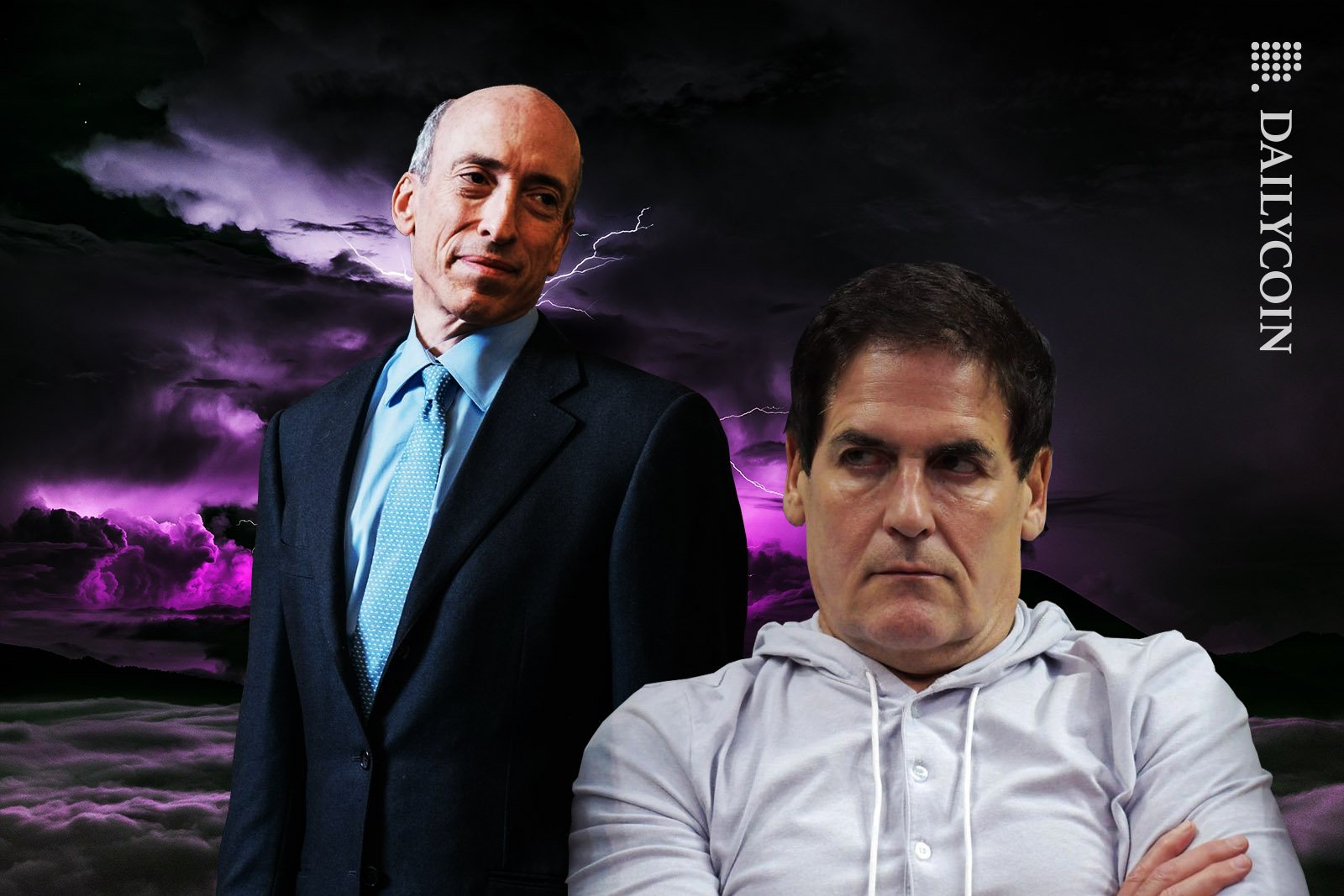
- Mark Cuban has compared the SEC’s approach to crypto with stock loans.
- The SEC seems to be taking different approaches to the same thing.
- Cuban states that labeling a crypto as a security is not black and white.
The SEC’s outright attack on the crypto industry has led many to delve deeper into the U.S.’s securities law. Some, including high-profile celebrity investors, have spotted some difficulties in the current approach to digital assets.
Billionaire business mogul Mark Cuban has taken to Twitter to slam the way in which the SEC is taking to enforcing securities law on the crypto industry. He has compared the SEC’s approach to the stock loan industry and noted that: “it [is] near impossible to know… what is or is not a security in the crypto universe.”
“One Industry vs. Another”
In an earlier tweet, Cuban outlined a fact sheet produced by the SEC which saw the agency call the stock loan industry “opaque” and requiring transparency.
The ambiguity in the SEC’s approach to the stock loan industry and crypto was highlighted by Cuban, who points out that the SEC is not calling stock loans a security as they are trying to do with the loaning of crypto assets. Nor are they suing the Stock Loan Departments of brokers or banks.
Sponsored
The approach the SEC has taken in this financial space is to go through a comments process, which Cuban believes should be afforded to the crypto space as it would help them determine, truly, “which aspects of crypto are securities and which are not and the best way to regulate the industry and protect investors.”
He added: “I think their difference in approach is emblematic of their intent for one industry vs. another.”
May, or May Not, be a Security
On June 11, Cuban pointed out that information from the SEC’s website appeared to be outdated and in conflict with how the SEC was enforcing its laws on the crypto sector.
Sponsored
The page explains how the Howey Test is used on tokens, but according to Cuban, none of the elements presented on the above page are part of the SEC registration process.
“Which makes it near impossible to know, with or without an army of securities lawyers, what is or is not a security in the crypto universe,” Cuban concluded.
On the Flipside
- Despite the inconsistencies and seemingly unfair bias against crypto from the SEC, its chair, Gary Gensler, said there was fair warning given. He said: “When crypto asset market participants go on Twitter or TV and say they lacked ‘fair notice’ that their conduct could be illegal, don’t believe it.”
Why This Matters
If it is the case that the SEC’s interpretation of its laws is unfairly biased against the crypto market, it would dent its credibility as the agency that should lead regulation in the U.S. A major debate is brewing about the classification of tokens and coins as securities, and this could be a watershed moment.
Read more about Gensler’s defense of the crypto crackdown:
Exchanges Were Warned: SEC Chair Gensler Defends Crypto Crackdown
Read more about Cathie Wood buying up under-fire crypto shares:
Cathie Wood Loads up on Coinbase, Block.One Shares Despite SEC Attack
